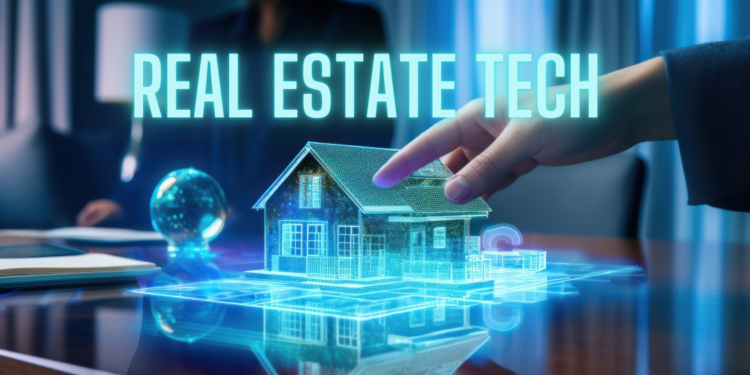The real estate industry, traditionally known for its conservative and slower-paced evolution, has embraced a wave of technological advancements in recent years. These advancements are reshaping how professionals buy, sell, manage, and market properties, and they are set to revolutionize the industry even further in 2024. From artificial intelligence to virtual tours and blockchain applications, here are the top 8 real estate tech trends that are changing the game in 2024.
What is Real Estate Tech?
Real Estate Tech, often referred to as PropTech (Property Technology), encompasses a broad range of innovative technologies that aim to improve and streamline various aspects of the real estate industry. This includes the use of software applications, online platforms, and digital tools designed to facilitate property transactions, management, and marketing.
Real Estate Tech covers advancements such as virtual and augmented reality for immersive property tours, artificial intelligence for data analysis and predictive modeling, and blockchain for secure and transparent transactions. Additionally, it involves the integration of smart home technologies and IoT devices, which enhance the functionality and energy efficiency of properties.
Ultimately, Real Estate Tech is transforming how industry professionals and consumers interact with real estate, making processes more efficient, transparent, and user-friendly.
1. Artificial Intelligence (AI) and Machine Learning
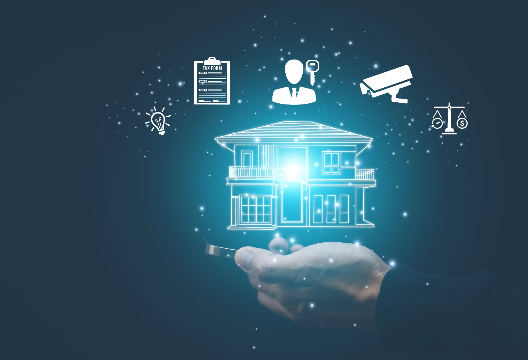
Artificial Intelligence (AI) and machine learning are two major driving forces in transforming real estate. By leveraging AI-powered tools, real estate agents, brokers, and developers are able to analyze massive amounts of data more efficiently. This data analysis can range from predicting property values, understanding customer preferences, to calculating the best time to buy or sell.
Machine learning models are helping property management firms predict maintenance needs, optimize rent pricing, and improve tenant retention rates. Additionally, AI-driven chatbots are now commonly used to provide real-time responses to customer inquiries, enhancing the customer experience and freeing up valuable time for real estate professionals to focus on closing deals.
2. Virtual Reality (VR) and Augmented Reality (AR) Tours

Virtual Reality (VR) and Augmented Reality (AR) have gained popularity in the real estate industry, especially since the COVID-19 pandemic. VR tours allow potential buyers or tenants to explore properties from anywhere, reducing the need for in-person visits. These immersive experiences enable users to get a realistic view of the property, explore every room, and even visualize changes like furniture arrangements or wall colors.
AR, on the other hand, allows for enhanced visualization by overlaying digital information onto the physical world. For example, prospective buyers can point their phones at a property and see property details or even estimate renovation costs. Together, VR and AR are creating a more efficient and accessible way to showcase properties and expand the reach of real estate listings beyond geographical limits.
3. Blockchain and Smart Contracts

Blockchain technology has introduced transparency and security into the real estate transaction process. Traditionally, property deals involve numerous intermediaries such as brokers, banks, and legal experts, each of whom adds time and cost. Blockchain, with its decentralized ledger system, reduces the need for intermediaries, speeding up transactions and reducing costs. This technology is especially helpful in simplifying property transfers, title tracking, and payment processes.
Smart contracts, which are self-executing agreements on the blockchain, automatically enforce the terms of an agreement once certain conditions are met. For example, a smart contract could automatically release funds to the seller when a buyer’s mortgage clears. This automation reduces paperwork, lowers transaction fees, and minimizes the chances of fraud, making the entire process smoother and more efficient. In an era where technology plays a crucial role in real estate transactions, the question Whom Do You Trust with Your Property? emphasizes the importance of a real estate agent, especially as blockchain and smart contracts emerge to enhance transparency and security in the buying and selling process.
4. Big Data and Predictive Analytics
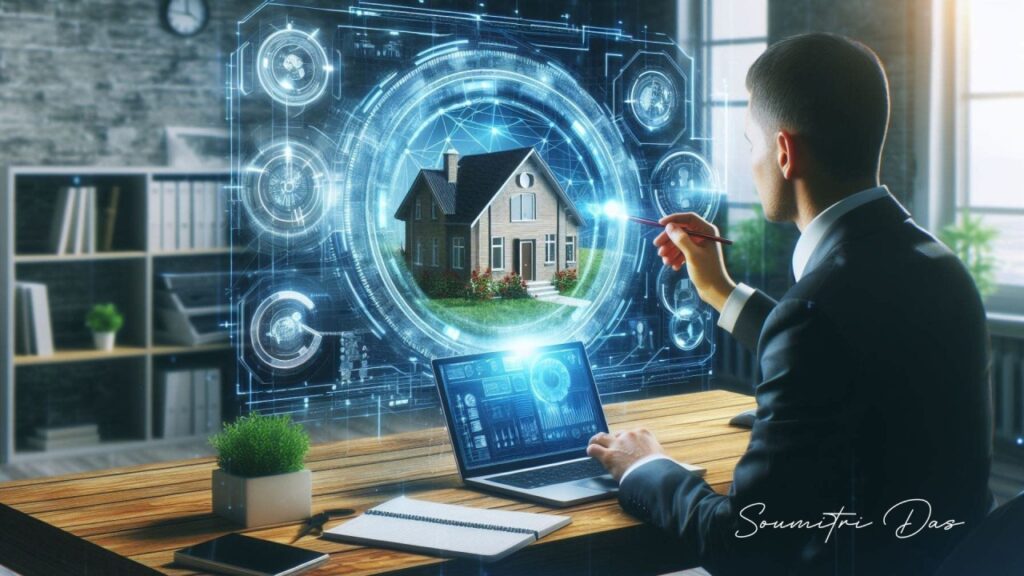
Data is king, and real estate is no exception. Big data allows real estate companies to collect and analyze a wealth of information on consumer behavior, property values, market trends, and more. Predictive analytics uses this data to forecast future trends, helping agents and investors make data-driven decisions. For instance, predictive models can estimate future property values, allowing investors to identify promising locations early on.
With big data analytics, real estate companies can also tailor their marketing strategies, targeting potential buyers based on factors like age, income, preferences, and browsing history. As a result, big data and predictive analytics make it easier for companies to predict market shifts, optimize pricing, and align their services with customer expectations.
5. Internet of Things (IoT) and Smart Homes
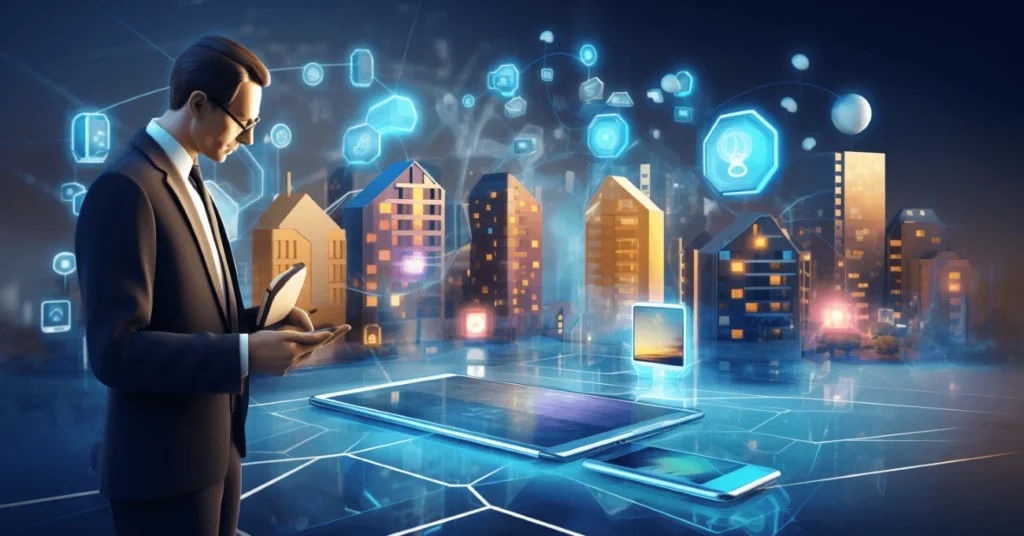
The Internet of Things (IoT) is making properties smarter by integrating devices that can communicate with each other and be remotely controlled. In real estate, IoT is most visible in smart homes, where devices such as thermostats, lights, locks, and even refrigerators can be controlled via smartphones or voice commands. These smart home technologies are attractive to buyers looking for convenience, security, and energy efficiency.
For property managers, IoT devices provide valuable data on tenant behaviors, helping them optimize energy use and identify maintenance needs before they become bigger issues. Additionally, IoT can monitor building conditions, track foot traffic, and provide real-time updates on safety concerns, making buildings more responsive and adaptable to user needs.
6. Digital Twins for Property Management

A digital twin is a virtual replica of a physical building or property, created using data collected from IoT sensors and other sources. Digital twins enable property managers and developers to monitor and manage properties in real-time without physically being on-site. By simulating the entire property, from energy consumption to structural health, digital twins allow managers to identify potential issues, optimize energy efficiency, and improve building design.
This trend is especially valuable for large commercial properties where frequent maintenance checks are costly and time-consuming. With digital twins, facility managers can predict when equipment will need maintenance, identify structural issues before they escalate, and improve overall tenant satisfaction.
7. Cloud Computing and Collaboration Platforms
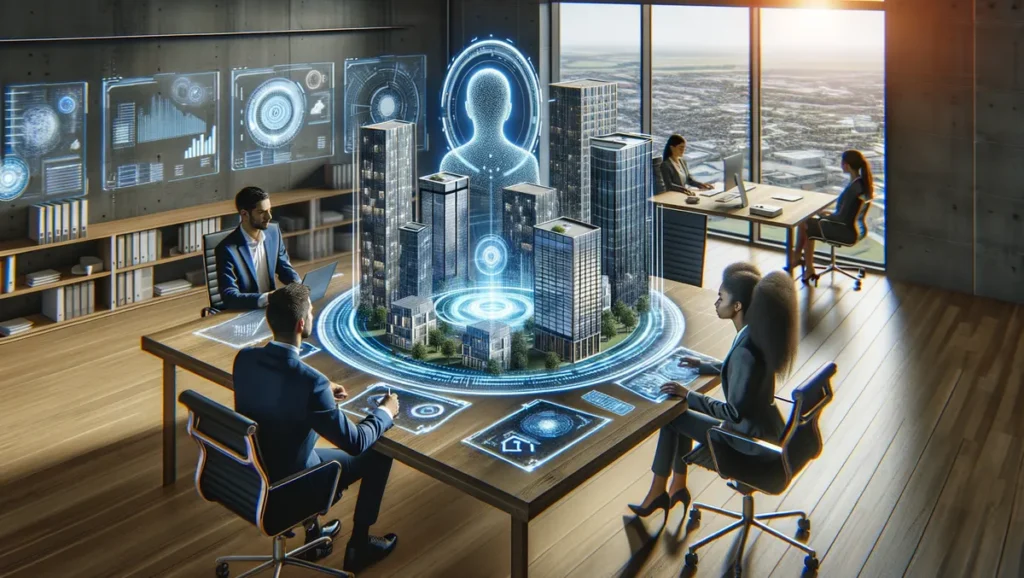
Cloud computing has become a foundational tool in real estate, especially with the rise of remote work and digital collaboration. Cloud-based platforms allow real estate agents, property managers, and developers to store and share documents, access files from anywhere, and collaborate on projects in real-time. This flexibility improves efficiency, enabling faster decision-making and smoother transactions.
Cloud computing also enhances data security and backup. Instead of keeping sensitive documents in filing cabinets or local storage, everything is securely stored in the cloud. Platforms such as property management systems and customer relationship management (CRM) software offer integrated solutions to manage leads, streamline operations, and improve client interactions, helping real estate professionals stay competitive.
8. Sustainable and Eco-Friendly Technologies
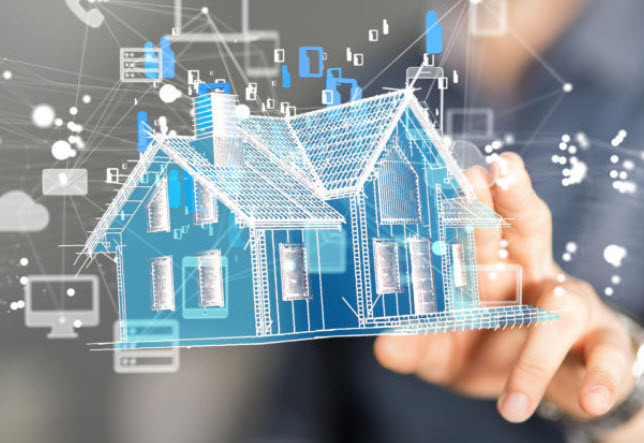
Sustainability has become a growing focus in real estate as environmental concerns rise. In 2024, eco-friendly technologies are not just beneficial for the planet but are also becoming a significant selling point. Green buildings equipped with energy-efficient lighting, water-saving plumbing, and solar panels attract environmentally conscious buyers and reduce utility costs for tenants.
Moreover, sustainable technologies are also incentivized by government policies, which offer tax breaks and credits for green construction. This trend is prompting developers to use recycled materials, install smart systems for water and energy use, and adopt designs that maximize natural light and airflow. As the demand for green buildings grows, incorporating sustainable features is becoming a priority in real estate development.
Conclusion
The real estate industry is undergoing a massive transformation, with technology playing a crucial role in shaping its future. From AI and VR to blockchain and green tech, these trends are creating opportunities for more efficient, transparent, and sustainable practices. As we progress in 2024, staying updated with these technological trends will be essential for industry professionals to remain competitive and meet the evolving demands of the market.
In the ever-changing landscape of real estate, adapting to technology is not just about staying current; it’s about staying relevant. By embracing these innovations, real estate professionals can enhance their services, reduce costs, and offer greater value to clients, paving the way for a smarter, greener, and more dynamic industry.
FAQ
What is a real estate tech company?
A real estate tech company uses technology to improve how people buy, sell, manage, or invest in properties. They offer digital tools like online property searches, virtual tours, and data analytics to streamline real estate processes and enhance customer experiences.
How can AI be used in real estate?
AI in real estate enhances data analysis for predicting property values, customer preferences, and market trends. It automates tasks like answering inquiries through chatbots, assists with targeted marketing, and improves property management by predicting maintenance needs and optimizing rent prices. Overall, AI streamlines operations, helping real estate professionals make data-driven decisions and deliver better customer experiences.
What technology is used in real estate?
In real estate, key technologies include Artificial Intelligence (AI) for data analysis and predictive modeling, Virtual and Augmented Reality (VR/AR) for immersive property tours, Blockchain for secure transactions and smart contracts, Big Data for market insights, Internet of Things (IoT) in smart homes, Digital Twins for virtual property management, Cloud Computing for document storage and collaboration, and Sustainable Technologies for eco-friendly building solutions. These innovations streamline processes, improve decision-making, and enhance client experiences in real estate.
What is IoT in real estate?
In real estate, the Internet of Things (IoT) refers to the network of connected devices and sensors integrated within properties, allowing them to communicate and be remotely controlled. This includes smart home features like thermostats, lights, locks, and security systems, which enhance convenience, security, and energy efficiency for residents. For property managers, IoT provides valuable data on building conditions, helping optimize maintenance, track energy usage, and ensure safety, making buildings more responsive to occupants’ needs.
What is the future of technology in real estate?
The future of technology in real estate is set to transform the industry with advanced tools that increase efficiency, transparency, and convenience. Innovations like AI for predictive analytics, blockchain for secure transactions, and VR for virtual property tours will make buying, selling, and managing real estate faster and more accessible. Additionally, sustainable and smart home technologies will cater to eco-conscious consumers, while cloud-based platforms will enhance collaboration. Overall, these advancements will streamline operations, meet evolving customer expectations, and drive growth in a tech-integrated real estate landscape.

